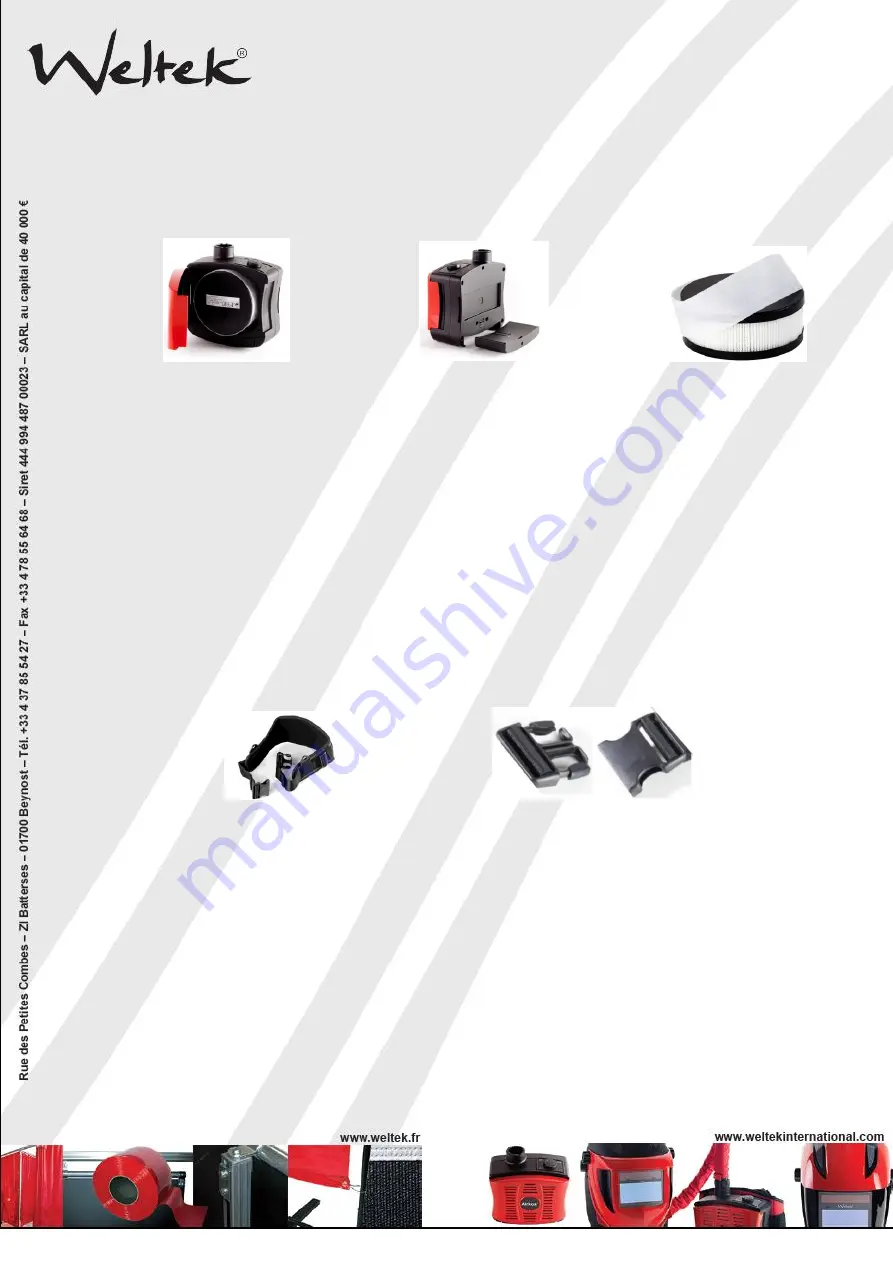
2 - Cleaning the Blower unit
•
Blower units can all be cleaned with a cloth moistened using hospital disinfectant used to
clean equipment and surfaces such as BioGuard
®
, Incidin
®
, Clinell
®
or similar.
•
Remove the main filter with its prefilter and place them in a biohazard disposal bag.
•
Dispose of them in the same manner other biohazardous waste is disposed of.
•
Clean each surface of the unit, paying particular attention to the hose outlet and filter
mounting surface and filter cover. Be mindful not to let liquids enter the working parts or
the battery.
•
Dry the unit with a clean towel or cloth, or allow to air dry and store in a clean environment
•
Do not reuse the blower unit until it is completely dry.
3 - Cleaning the Belt
•
The belt is fully hand washable and should be cleaned on both sides. The belt can be
cleaned using hospital disinfectant used to clean equipment and surfaces such as
BioGuard
®
, Incidin
®
, Clinell
®
or similar.
•
Note: if drying time allows, belts can be fully submerged (this would be the most efficient
way of cleaning them) or the belts can be sprayed with disinfectant.
•
The belt can now be left to air dry in a place free from risk of contaminates
4 - Filter information
•
Replace the filter and its prefilter after each shift, ensuring you are wearing the correct
PPE such as disposable gloves and eyewear.
•
The filter and the prefilter should be replaced with genuine Airkos
®
replacement items:
CR7050 and CR7060.
•
The filter and the prefilter are to be disposed of in a biohazard disposal bag, and disposed
of in the same manner other biohazardous waste is disposed of.
The Airkos
®
unit should continue to provide protection to the designed specification for a
minimum of 2 to 3 years, when maintained in accordance with these instructions. Prior to each
use the user should check that the unit is free from defects, such as cracks, split filters and hoses,
cracked visors and hood components.




















